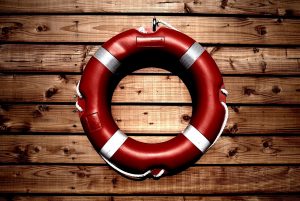One of the foundations for personal finance, and a key piece to your own financial well-being = the mighty Emergency Fund.
Read on to find out what exactly an emergency fund (EF) is, where you should store it (aka NOT under your pillow) and tips on how you can save up to create an emergency fund that works for you!

So what exactly is an emergency fund?
How will you fund a home repair, car fixes, broken laptop or a period of unemployment? An emergency fund (EF) is the pot of money that will be able to fund all of the above

How much shall I save in my Emergency Fund?
The amount you put away in your emergency fund really does depend on your personal circumstances. A general rule of thumb is that is should cover around 3 – 6 months of expenses (such as rent or mortgage, utility bills and groceries), however you may want to cover more than 6 months, it that gives you peace of mind.
HSBC have an emergency fund calculator that calculates the time it will take for you to save your emergency fund.
Here are a few things you want to consider when thinking how much you should put away:
- Find an amount to put away that will give you a peace of mind
- Will the amount cover a period of unemploment
- Will it cover at least 3 months of your / household expenses
How do I go about building an Emergency Fund:
A few steps involved to start building your emergency fund:
- Work out how much money you need saved Calculate your expenses for one month, than multiply this figure by 3 if you would like your EF to cover 3 months, or multiply by 5 if you would like 5 months covered in your EF.
- Find out where you will keep your EF A very common question, but your EF should be somewhere that is easily accessible and is an account that is protected by the FSCS (aka not under your pillow nor invested in the stock market). If you have a tendency to impulse purchase, it may be worth setting up your EF in an account that is separate from your current account or the bank you do your daily banking with.
- Set a clear plan A plan will give you the right mindset to stay on track to build up your EF and provide you the understanding of what you want to achieve. It will also allow you to clear on what exactly an emergency is, therefore when you should use it
- Start Saving the Money! Start saving up for your emergency fund as soon as you can. Saving smaller amounts on a regular basis is often more effective than saving larger amounts every so often, as consistency pays off.
- Keep topping up your EF Stay consistent when building your EF. This can be done by adding a column into your monthly budget or I find setting up a monthly standing order a good way to stick to. Remember to maintain your EF : so if you ever dip into it, you will need to be sure to top it back up to cover the original amount.
Have you found this interesting and would to book a 1:1 session to cover all things personal finance? Book a session here
